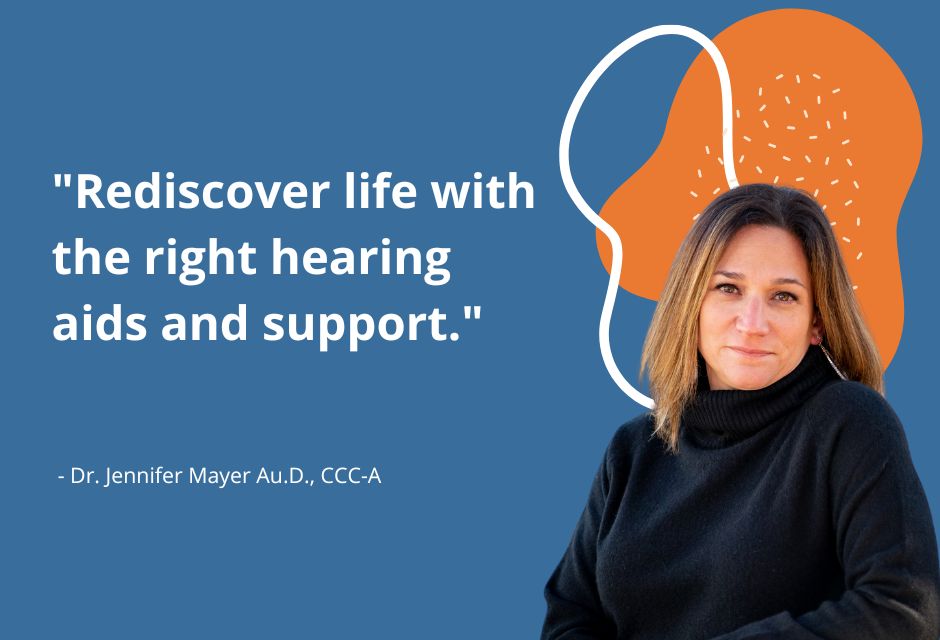You Don’t Have To Live With The Ringing In Your Ears
Those who struggle with chronic tinnitus may struggle to relax or escape the overwhelming presence of tinnitus, but there are devices and techniques available to help manage your condition and minimize the impact it has on your life.

What is Tinnitus?
Tinnitus is the perception of noises within your ears or head, often described as ringing, buzzing, whooshing, roaring, crickets, etc., that do not exist as an external sound. Many researchers recognize the condition as a neurological disease that is similar to “phantom limb” experienced by amputees.
In its initial stages, tinnitus goes unnoticed or may come and go (acute tinnitus), but as the sounds intensify, loss of sleep, increased stress, and decreased productivity are common consequences. Greater awareness of the condition adds to the level of stress, leading to increased intensity and greater awareness of the condition that produces a snowballing effect.
What Causes Tinnitus?
The specific cause of tinnitus has not yet been identified. Possible causes include:
Damage To The Inner Ear
Middle Ear Infection
Meniere’s Disease
Earwax Buildup
Ototoxic Medications
High Blood Pressure
Hyper/Hypothyroidism
Diabetes
Acoustic Neuromas
Common Techniques for Managing Tinnitus
Keep in mind that with no defined cause, there is no defined cure for tinnitus. However, doctors, scientists, and audiologists have developed several technologies and techniques to help patients find relief from its effects, including:
Masking
Uses background sounds to reduce awareness of tinnitus, offering temporary relief through distraction.
Medication Therapy
Helps manage tinnitus-related stress, anxiety, and insomnia with prescribed or over-the-counter medications.
Levo Systems
Plays custom soundtracks mimicking tinnitus to help the brain ignore the phantom sound over time.
Desync Sound Therapy
Targets tinnitus by disrupting brain signals causing it, aiming to retrain how the brain processes sound.
Listening Program® SLEEP
Delivers specially designed music during sleep to help the brain relearn sound perception patterns.
Sound Pillow® Sleep System
Built-in speakers deliver calming sounds to promote restful sleep and ease tinnitus discomfort.
Hearing Aids
Amplify ambient noise to mask tinnitus while improving hearing loss, offering dual therapeutic benefits.
Alternative Therapies
Includes counseling, relaxation, and biofeedback to ease tinnitus by calming the nervous system.
Cognitive Habituation Tinnitus Therapy (CHaTT)
Combines sound therapy with CBT and mindfulness to reduce tinnitus distress and change perception.
Tinnitus Management Leads To A More Rewarding And Productive Lifestyle
A hearing assessment and tinnitus evaluation are critical first steps to establishing a tinnitus management plan. South Shore Hearing’s management technologies and techniques are built on well-established research and experience that have produced measurable results, which lead to a more rewarding and productive lifestyle.
If you or a loved one is struggling with tinnitus, then schedule a hearing assessment and tinnitus evaluation appointment with one of our experts.

Tinnitus Often Accompanies Hearing Loss
Statistics show that 75% of people with some level of hearing loss also complain of tinnitus symptoms. Although it does not cause hearing loss, tinnitus can be an indicator of mild to severe hearing loss.
The Central Gain Theory is among the prevailing theories surrounding why individuals with hearing loss experience tinnitus and tinnitus-related symptoms. Proponents of this theory argue that tinnitus is an adaptive, neurological response by your brain to replace missing brain sounds no longer received through the normal hearing process.

Tinnitus Evaluation And Diagnosis
A hearing assessment is the first step toward managing tinnitus symptoms. During your hearing evaluation, your audiologist will ask for information regarding your condition and how it is affecting your quality of life.
Your hearing assessment will also identify hearing loss, medications, and other conditions known to produce tinnitus symptoms.
In some cases, testing by ear, nose, and throat doctors or other medical professionals is necessary to rule out other medical conditions.




